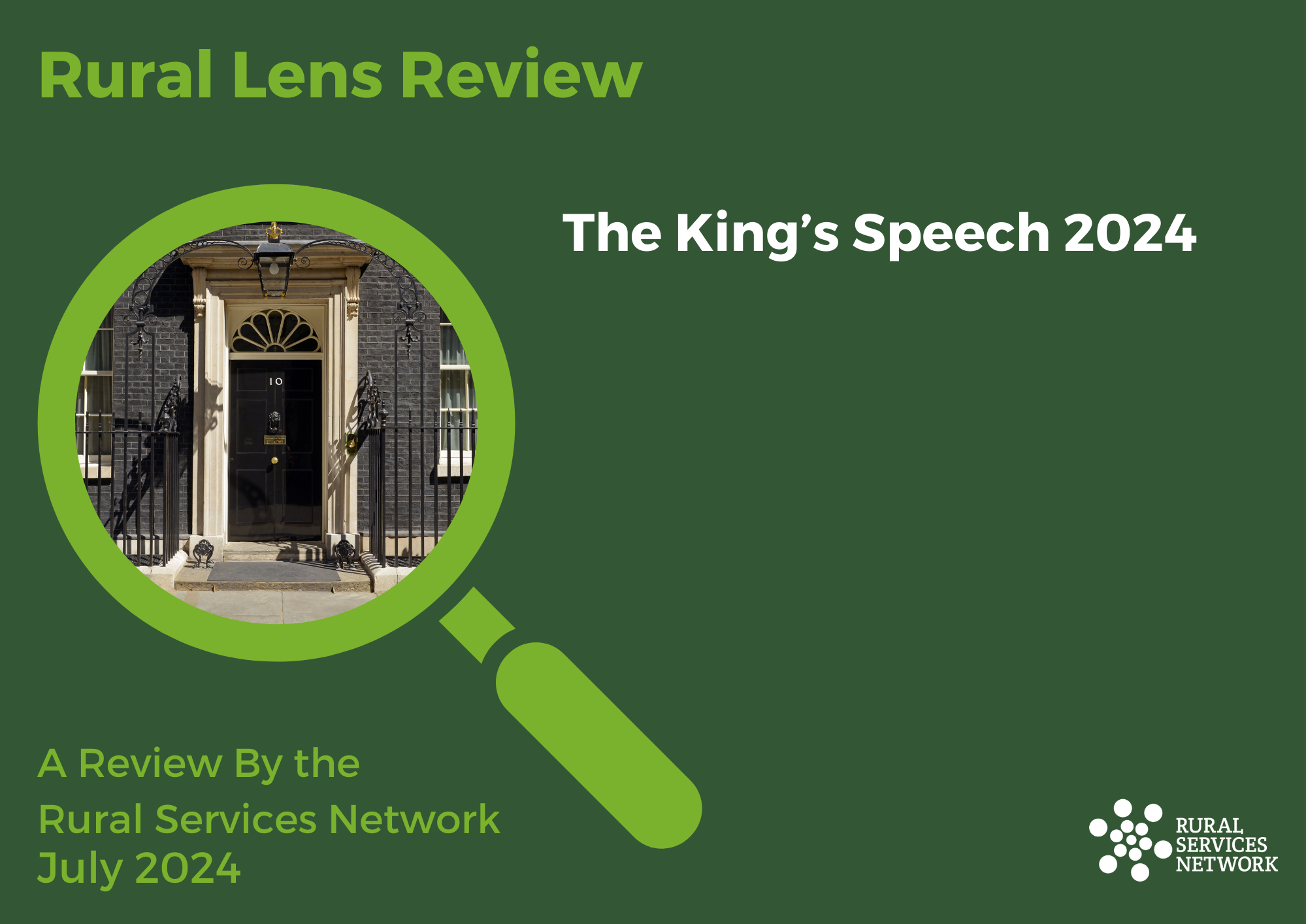T: 01822 851370 E: [email protected]
Unlocking Rural Potential: Insights and Reactions to the King's Speech

Last week at the opening of parliament, The King’s Speech highlighted a series of legislative priorities aimed at addressing critical national issues. A number of these new bills hold significant implications for rural communities, which often face unique challenges that differ from their urban counterparts.
At the Rural Services Network, we are committed to ensuring that the voices and needs of rural areas are recognised and addressed in national policy.
Kerry Booth, Chief Executive, Rural Services Network:
It is always interesting to hear the policies outlined in the King’s Speech and see where the Government plans to focus its efforts in the coming months, however often it is difficult to see the impact of a Bill, until we see the detail behind the headlines!
At the RSN we welcome the focus on growth, however, urge the Government to recognise the potential of the rural economy in helping to grow the prosperity of the nation. Without targeted action, it will continue to lag behind. The rural economy is varied and predominantly comprises SME and Sole traders, it will be important therefore that these small businesses are not disadvantaged by changes to working conditions.
The Speech included information about the planning system, and a relaxing of rules to enable more national infrastructure projects to progress, but this must not be a policy that disregards local opinion and should enable rural communities to benefit from initiatives and infrastructure that is situated in their communities.
The RSN has long advocated for the right houses to be built, in the right locations with access to relevant infrastructure and the Speech was light on details about how this would work.
Devolution features strongly in Labour’s plans for local government, and we support the idea that decisions should be taken at a local level to meet local need. However, there must be a process to ensure that the voice of rural communities is not lost, in a wider regional organisation that may focus on its urban centres.
Ultimately, the success of these proposals hinges on the availability of adequate funding to support the policy direction. The current funding formula and policy must be reviewed to ensure that rural areas receive a fairer allocation. By doing so, not only will we be able to implement these policies effectively, but we will also contribute to the overall prosperity of the nation. Fairer funding for rural areas will unlock their potential, driving national growth and prosperity.
Additionally, our 'Rural Lens' review offers a detailed analysis of how these legislative measures align with the interests and needs of rural communities:
 |



